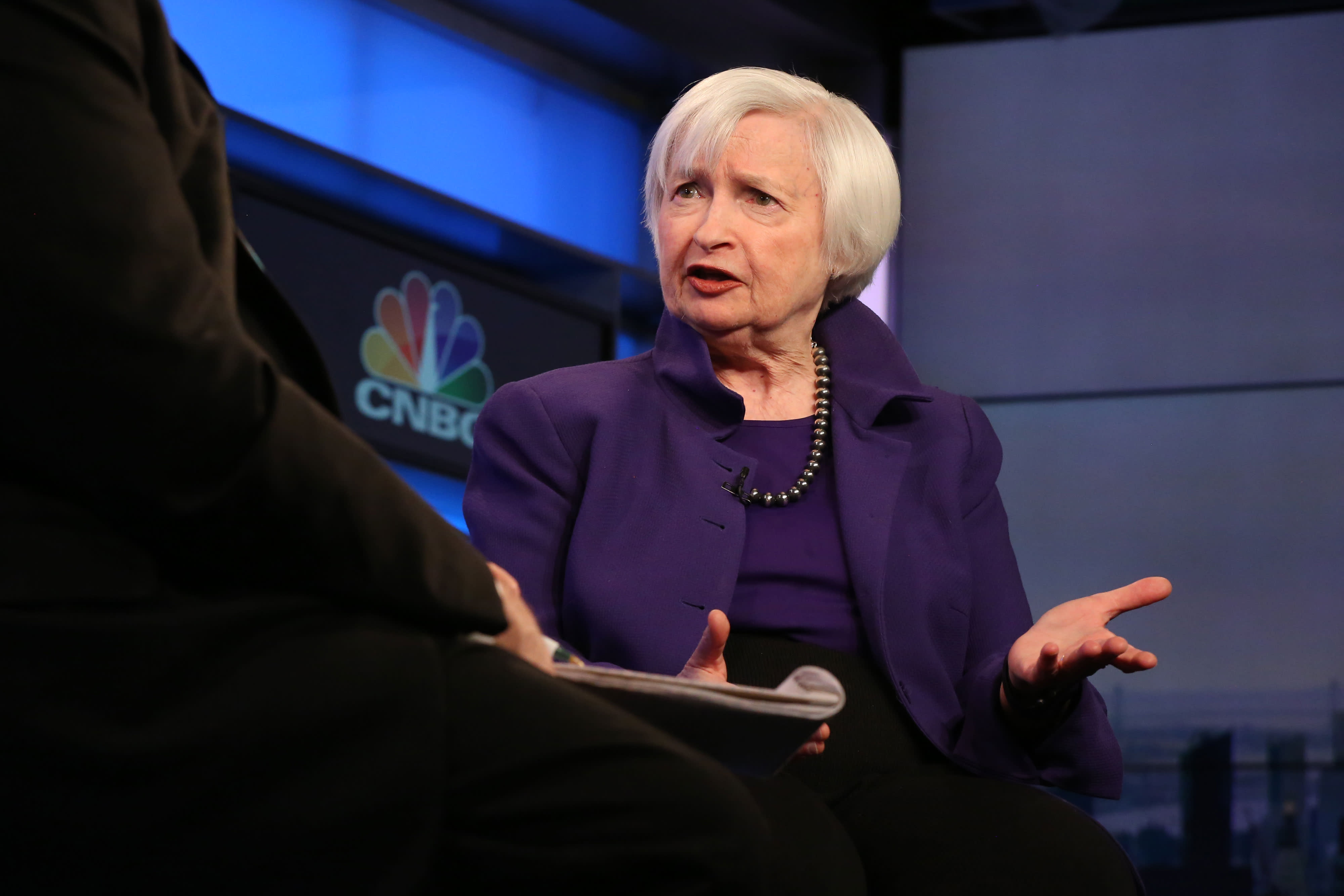Janet Yellen’s journey to become the first female Treasury secretary in U.S. history moved smoothly through a critical Senate hearing Tuesday, with a vote on her confirmation likely to happen before the end of the week.
An audience of mostly friendly legislators questioned Yellen across a variety of topics, from taxation to China to climate change.
In contrast to a highly contentious hearing four years ago for now-outgoing Secretary Steven Mnuchin, members of the Senate Finance Committee mostly thanked Yellen for her willingness to serve.
A few peppered her with concerns over the nation’s fiscal path and the Biden administration’s likelihood of raising taxes on wealthy Americans and corporations, though there were no outward signs of resistance to Yellen’s nomination.
“No one could be better for this job,” Sen. Ron Wyden, D-Ore., said of the nominee. “Nobody deserves more credit than Janet Yellen for the longest economic expansion that we have seen in our history that lasted until the pandemic hit.”
Wyden indicated that a Yellen confirmation vote before the full Senate likely would happen Thursday.
Yellen comes to the Treasury most recently from the Brookings Institution, but her more well-known previous gig was as Federal Reserve chair, a position she held from 2014-18. President Donald Trump chose not to renominate her to the central bank leadership position, which she also was the first woman to hold.
The Senate got to hear a somewhat different version of Yellen, who assiduously had avoided commenting much on fiscal affairs or other doings on Capitol Hill while at the Fed. This time around, she was able to voice her opinions on a variety of issues.
A sampling:
1. Higher taxes are coming, but not now
Yellen characterized President-elect Joe Biden being in favor of some tax increases on wealthy Americans and corporations to fund an ambitious domestic agenda that includes pulling the country through the coronavirus pandemic and, eventually, avoiding the “race to the bottom” among global economies when it comes to corporate taxes. The U.S. levy on profits was the highest in the developed world prior to Trump’s 2017 tax cut package.
“The focus right now is on providing relief and helping families keep a roof over their heads and food on the table and not raising taxes,” she said. With Biden’s spending plans “we need to think about taxes in the context of a package that aims to do those things,” Yellen said. “To the extent that financing is required for these very valuable investments, I believe it should come in a fair way.”
2. ‘Fiscal sanity,’ but also not now
Facing multiple questions about the nation’s tattered finances, Yellen said there will come a time to talk about debt and deficits, but not until the economy has recovered from the pandemic. The U.S. is currently carrying a $27.7 trillion debt load after ending fiscal 2020 with a more than $3.1 trillion budget deficit.
“The Treasury secretary has to be a voice for fiscal sanity. I pledge to do that. Our finances need to be on a sustainable longer-run course,” she said. “Right now, short-term, I feel that we can afford what it takes to get the economy back on its feet to get us through the pandemic and to relieve the burdens that it’s placing on households and small businesses.”
3. Still tough on China
Yellen’s predecessor Mnuchin spent huge swaths of his term carrying out the administration’s economic conflict with China. Negotiations with Beijing turned out largely fruitless, and Trump’s China tariffs did nothing to bring down the trade imbalance between the two nations.
Yellen said the new administration will remain focused on getting China to change its ways, though Biden likely will eschew the type of unilateral techniques that Trump employed, preferring instead to “work with our allies” in the effort.
“We need to take on China’s abusive, unfair and illegal practices,” she said. “China is undercutting American companies by dumping products, erecting trade barriers and giving illegal subsidies to corporations.”
“It’s been stealing intellectual property and engaging in practices that give it an unfair technological advantage, including forced technology transfers,” Yellen said. “These practices including low labor and environmental standards are practices that we are prepared to use the full array of our tools to address.”
4. Backing the buck
Trump vocally – and some said inappropriately – expressed his strong preference for a weaker dollar, a stance rarely heard from previous White Houses. That apparently will not be the position of the new administration, as Yellen said the incoming regime wants a stable currency whose price should be determined by market forces.
“The United States does not seek a weaker currency to gain competitive advantage, and we should oppose attempts by other countries to do so,” she said. “The intentional targeting of exchange rates to gain commercial advantage is unacceptable.”
A footnote: Yellen’s critics while she was at the Fed said the central bank’s policies then undermined the dollar by keeping interest rates unnaturally low and through the nearly $4 trillion of bond-buying that Yellen helped oversee during her time.
5. More stimulus
Likely the first item on Yellen’s to-do list will be guiding the administration through another round of spending aimed at those impacted by the pandemic.
Biden last week proposed a $1.9 trillion plan that likely will get pared down but still will launch the third major fiscal volley at helping the U.S. through until the health care system can get vaccines widely enough distributed to achieve herd immunity.
“It will be my core focus if I’m confirmed as Treasury secretary to focus on the needs of American workers, those living in cities and rural areas, and to make sure that we have a competitive economy that offers good jobs and good wages,” she said.
That will include “over time” working on the next bill “that I think we need to get through these dark times before the vaccination program enables us to get back to life as we knew it.”
